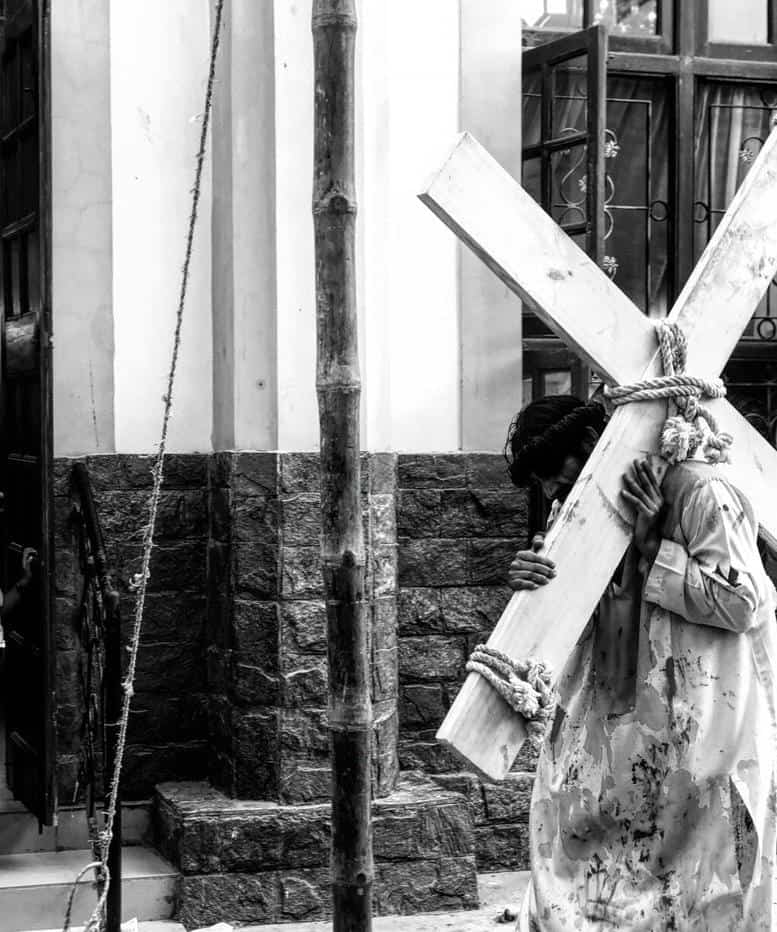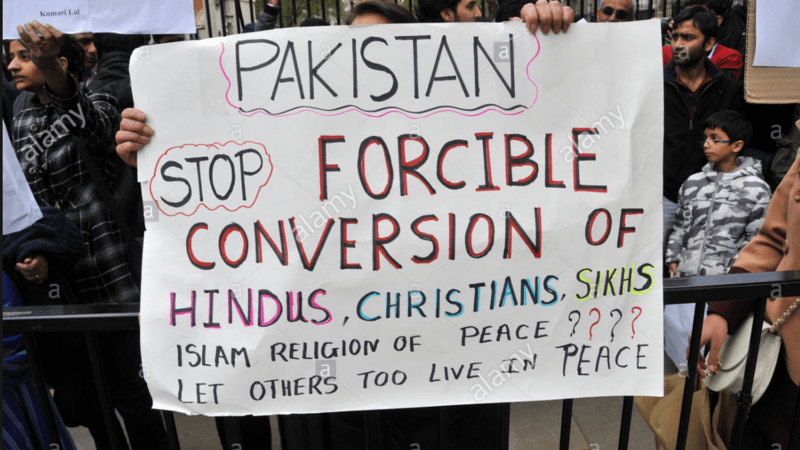The following article is written by Myra Valentina Lourdes Das and speaks of her experience growing up Christian in Pakistan, and the injustice and discrimination minorities within our country face – we need to change this.

Christians make up one of the two largest (non-Muslim) religious minorities in Pakistan, along with Hindus. The total number of Christians in Pakistan was estimated at 4 million in 2020, which is 2% of the population. The Pakistan Hindu Council puts the Hindu population at an estimated 8 million as of Oct 2019. And the Parsi population is dwindling down to 1,092 in Pakistan. Growing up Catholic in Karachi, I’ve had a cacophony of fears instilled in me for as long as I can remember. There have been words of caution from family, friends, and the likes. It ranges from the way I have to dress in public, to the way I converse with others who belong to a majority group. Our experiences as a religious minority in a predominantly Muslim society are complex and nuanced. We perceive personal interactions through disguising ourselves as the other and carefully planning our celebrations. Here are some of the things I have learnt while growing up Christian in a Muslim society:
1. You Can’t Wear That
The amount of times I’ve heard this sentence growing up is almost comical. I feel like I am conditioned to think of skinny jeans and fitted t-shirts as the devils clothing. From the moment I wear such an outfit, it’s as though silent alarm bells go off and my mum comes rushing in with an onslaught of questions – “Where will you wear that? You will need to cover yourself.” It ends with “I understand, but I want you safe. You know how it is.” Sadly, I do know how it is and I comply. Angrily, dejectedly, silently, I comply.
There is a distinct memory which saddens me to this day. A Muslim physics teacher called me out in front of my peers during my matriculation farewell party, for wearing a sleeveless dress. My Muslim class teacher defended me and calmed me down. It was my farewell party at a Convent school; an all girl’s school. I was called out for wearing a sleeveless dress, while girls who wore sarees with sleeveless blouses weren’t ridiculed. Why? A saree is more accepting, more modest? It’s not the dress, but the mindset which is inherently wrong.

2. Good Morn – No You’re Saying It Wrong
This was a rude awakening and realisation I had come to during my two years of intermediate studies. Greeting a teacher or sir with good morning/afternoon broke all hell loose. It meant you were disrespectful, ill –mannered, and a completely discourteous young woman who had no place at said college. Assalamualaikum was the only appropriate and suitable greeting. It was drilled into your head over the course of 2 years.
3. Forced Conversions
It’s extremely difficult for me to sum this up in a few lines, but I will try to. Forced Conversions is a plague that has taken over Pakistan for eons. The Human Rights Council of Pakistan has reported that cases of forced conversion are increasing. A 2014 report by the Movement for Solidarity and Peace (MSP) says that about 1,000 women in Pakistan are forcibly converted to Islam every year (700 Christian and 300 Hindu). The Peoples Commission for Minorities’ Rights and the Centre for Social Justice compiled the data of 156 incidents of forced conversions which took place between 2013 and 2019. Who cares for our girls? Who is looking after our girls? Are we only waiting for each of us to become a mere statistic? There have been protests, bills, laws – all that are only amplified every time a new case arises. Yet, in the year 2020, one of my worst fears is to be a victim of forced conversion in Pakistan. This needs to change.

4. Nadeem Joseph – Remember His Name
Atrocities against religious minorities continue unabated in Pakistan day and night. You slowly grow used to the onslaught of terrible news, but this particular one, shook me to my core. I went perambulating through the house, in search for someone to talk too because of how upset I was.
“A Christian man was shot and wounded for allegedly buying a house in a Muslim area in Khyber Pakhtunkhwa. Nadeem Joseph and his mother-in-law Elizabeth Masih were shot by their Muslim neighbour Salman Khan and his son a few days after Joseph’s family purchased a home in Peshawar’s TV Colony this month.” This is one of the many news headlines I have read. I can’t help thinking of him working long hours day after day, envisioning a home for his family and himself, and saving up whatever he could to make that dream come true; only to be gunned down for merely purchasing a home. What a vile, deplorable act. Nadeem Joseph succumbed to his injuries during his 5th surgery. May his soul Rest in Eternal Peace. Amen.
5. Amplified Security
There was a time when our church gates were open and welcoming to the world. Gradually, due to attacks on churches across Pakistan, security was heightened. Scanners started to be used and bags and offerings were checked. For religious feasts and ceremonies like Good Friday, Easter and Christmas, rangers are especially called in, to guard gates & roads surrounding the church. It almost feels surreal; to go pray with such amplified and heavily guarded security, but it’s one of the many experiences we have to go through as minorities.

6. Ramadan
Imagine hiding in the girls common room during class break – ducking your face down and taking small bites of a roll or nibbling on some chips to keep yourself from fainting or dying of hunger. God forbid any one would see a water bottle. “Have you no shame? Have some respect for others feelings! Shoving the bottle in our faces like that!” It’s inexplicably hilarious when they attack their own. What if someone’s sick and can’t keep a fast one day? My Muslim friend faced bullying too because of that during the holy month.
In the face of all this, Karachi is my home. The people, the roads, the food, the dirt – it’s all my home. I am grateful for the little joys and the little things: being wished Merry Christmas by Muslim friends who refused to during my first year at university, sharing similar stories of unlearning ways of the patriarchy no matter the religious background with college peers, my father giving Eidi to neighbours who bring sweets during Ramadan, distributing fruit cake and Christmas sweets on Christmas day; skipping lunch (willingly) so that I can feast with my university friends during iftaar, receiving garam garam pakoras from neighbours during Ramadan and educating friends about my religion and learning about theirs. Some of my closest friends are Muslims. Should we have to live like that, through minuscule jubilation with our freedom of speech grossly restricted? Always living in absolute tantamount terror? What life is that at all?
Where is the love, the acceptance, the embracing of us all? You gave us a place on the flag of Pakistan, what about your hearts?









What do you think?
You must be logged in to post a comment.